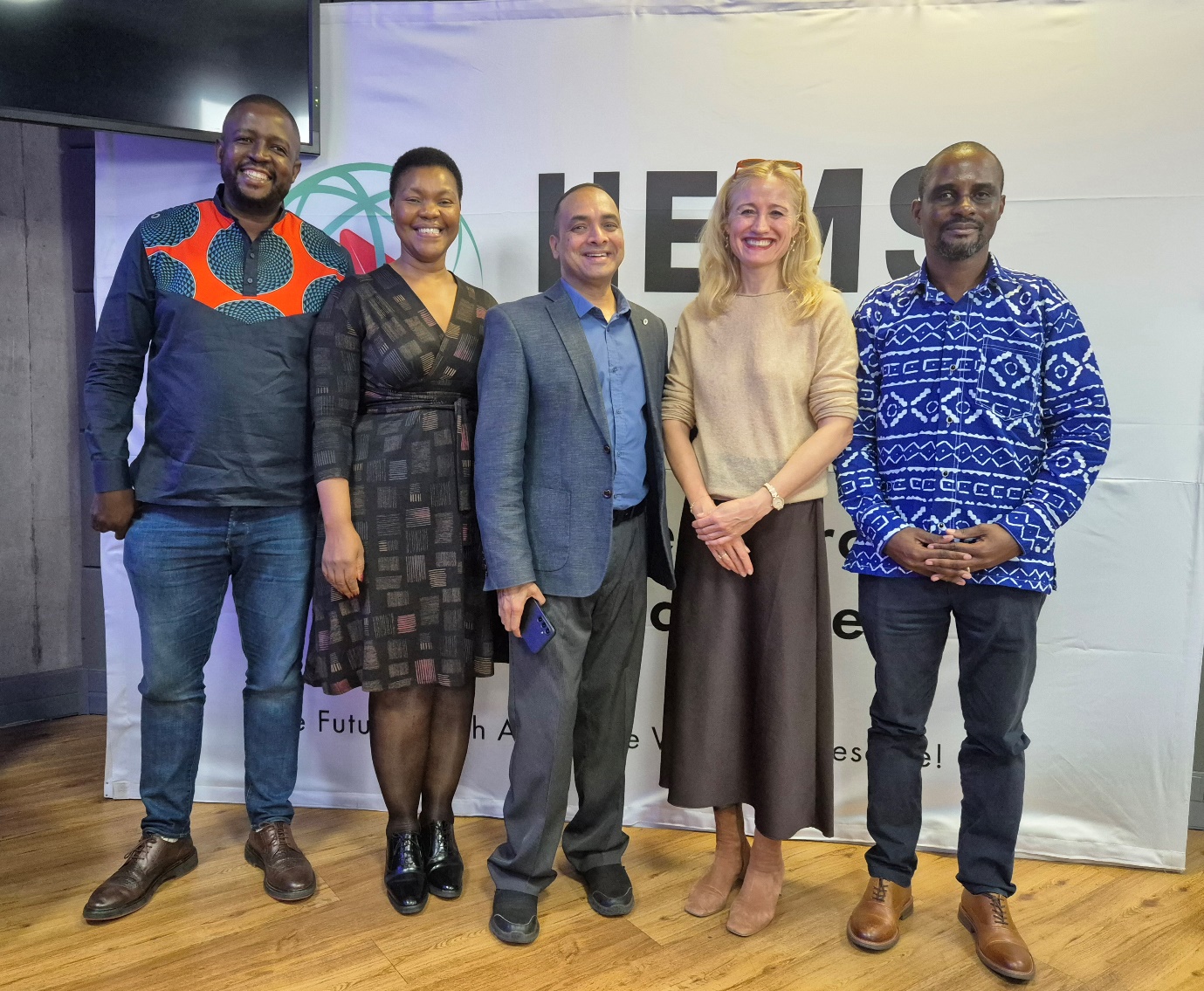In partnership with the University of Johannesburg (UJ) Library, Higher Education Media Services hosted a roundtable on Monday, 14 April 2025, titled “Speaking the Truth by Understanding the Untruth: Addressing Fake News and Disinformation in South Africa and the African Continent.”

Opening the discussion, UJ Vice-Chancellor and Principal Professor Letlhokwa Mpedi referenced a recent disinformation incident involving a fake report—branded with a major news network’s logo—claiming that Ukraine’s First Lady had fled the country. The story spread widely across social media.
“We’re living in an era of disinformation,” he said. “Distinguishing fact from fiction has become harder, with serious consequences. Disinformation in Africa is spreading rapidly, threatening democracy, stability, and civil liberties.”
Citing research from the Africa Centre for Strategic Studies, Professor Mpedi noted a nearly fourfold increase in disinformation campaigns across the continent since 2022—fuelling violence, coups, and election interference. With the rise of generative AI, he warned, the scale and speed of disinformation are only increasing.
“Though global in nature, disinformation’s impact on Africa is significant. This roundtable is a timely contribution to shaping informed responses, with insights from journalists, academics, and policymakers.”
What Is fake news, really?
Facilitated by Professor Ylva Rodny-Gumede, Senior Director for Global Engagement at UJ, the roundtable began by asking: what exactly is “fake news”?
Phathiswa Magopeni, Executive Director of the Press Council of South Africa, challenged the term itself. “News is verified and accurate. ‘Fake news’ is misleading—it conflates disinformation with journalism and undermines trust.”
Professor Admire Mare, Head of Communications and Media at UJ, traced disinformation back to propaganda in the 1920s. “Technology has changed how it spreads. Generative AI and synthetic media make it easier than ever to manipulate content—and harder to verify what’s real.”
Continental insights: Kenya and Mauritius
Award-winning Kenyan journalist Mary Mwendwa described disinformation’s growth in Kenya, from political propaganda to online harassment of women leaders. “Despite existing laws like the Cybercrimes and Computer Misuse Act, public awareness remains low. Many struggle to separate credible news from misinformation.”
From Mauritius, Christina Chan-Meetoo, Senior Lecturer in Media and Communication at the University of Mauritius, observed that disinformation surges during major events like elections and pandemics—fueled by mistrust and lack of regulation.
Regulation, literacy and media resilience
Panellists called for coordinated action across sectors.
Reggy Moalusi, Executive Director of SANEF, urged media professionals to reflect on their role. “Shrinking newsrooms and declining trust are challenges. Yet South Africa ranks among the top three for media freedom. We must protect this and invest in new media talent.”
Professor Mare emphasised the need for critical media literacy and regional cooperation. “Countries with limited media infrastructure must work together to push for stronger regulation.”
Magopeni added: “It’s worrying that disinformation is rising just as journalism training declines. Many of the biggest disinformation spreaders own the platforms they use. Cross-border collaboration is vital to tackle this transnational threat.”



